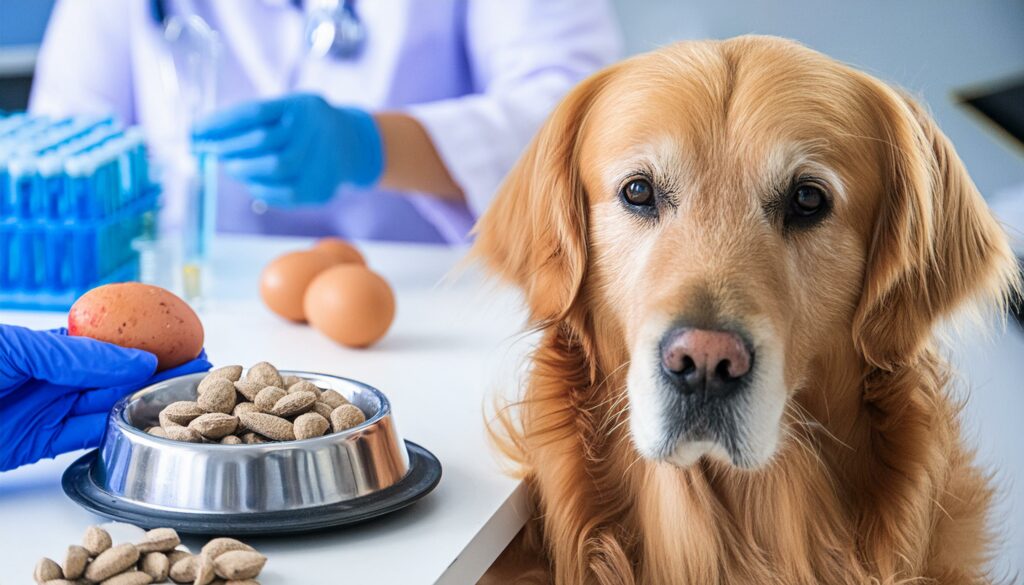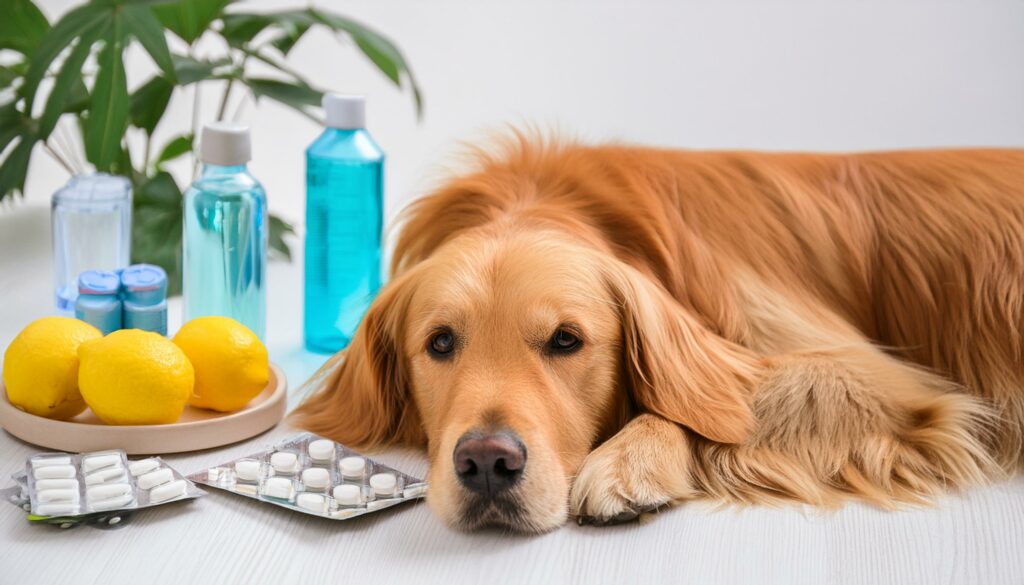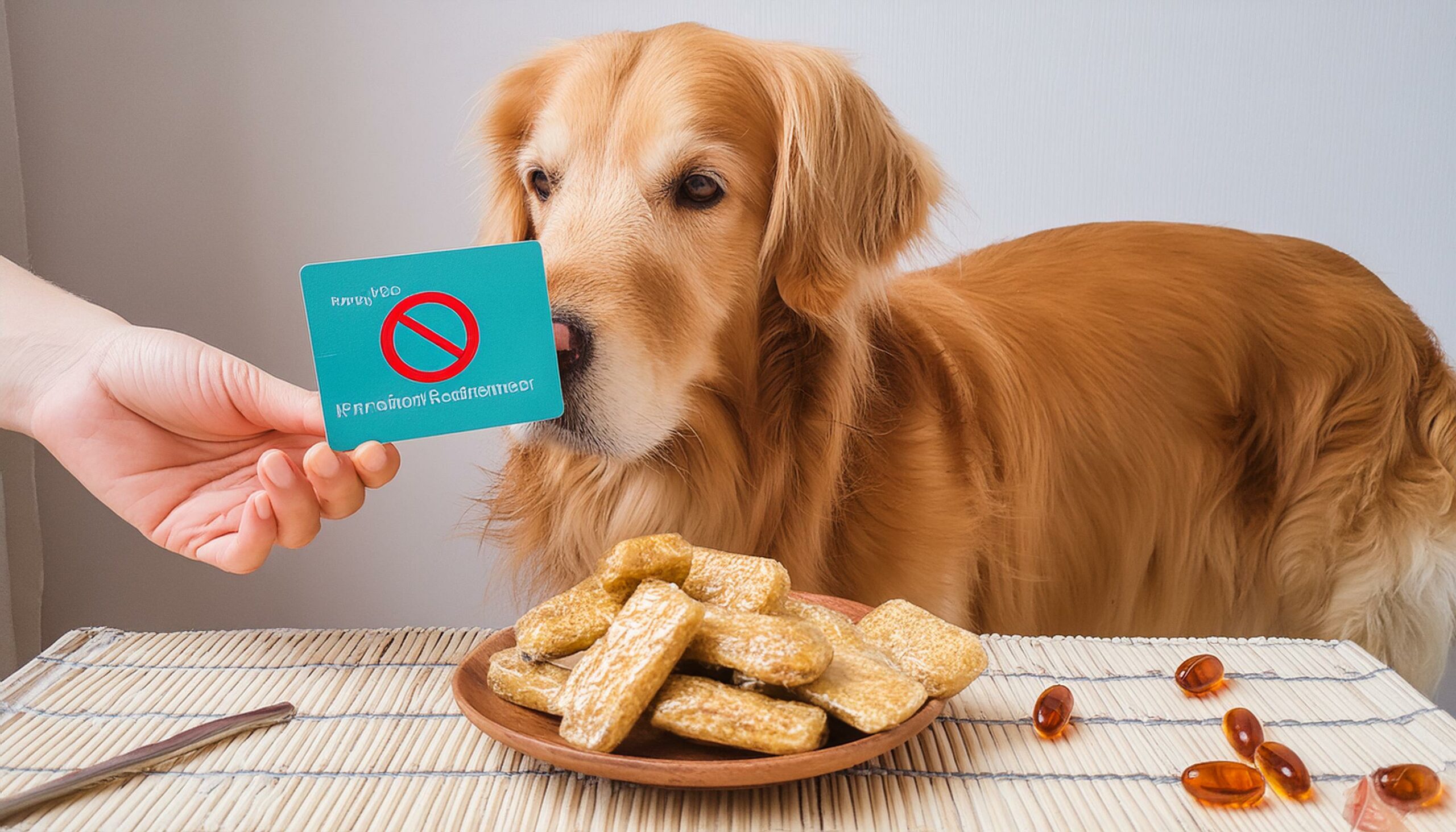Golden Retrievers are beloved for their friendly demeanor, intelligence, and loyalty, making them a popular choice for families. However, ensuring their well-being goes beyond providing love and attention; it also involves being mindful of what they eat. In this guide, we’ll explore what foods are harmful to Golden Retrievers and how to keep them safe.
Introduction to Golden Retrievers
Golden Retrievers are renowned for their gentle temperament and playful nature. They are often referred to as “golden angels” due to their affectionate disposition towards humans, especially children. With their striking golden coats and expressive eyes, Golden Retrievers quickly become cherished members of any household.
Importance of Knowing What Golden Retrievers Can’t Eat
Understanding what foods are safe for Golden Retrievers is crucial for their overall health and well-being. Dogs, including Golden Retrievers, have different dietary requirements than humans, and certain foods that are harmless to us can be toxic to them. Being aware of these dangers can prevent potentially life-threatening situations and ensure your furry friend stays healthy and happy.
Foods Toxic to Golden Retrievers
Chocolate and Caffeine
Chocolate contains theobromine and caffeine, which are stimulants that can be toxic to dogs. Even small amounts of chocolate can cause vomiting, diarrhea, rapid breathing, increased heart rate, seizures, and in severe cases, death. Dark chocolate and unsweetened baking chocolate pose the greatest risk due to their high theobromine content.
Grapes and Raisins
Grapes and raisins are highly toxic to dogs, including Golden Retrievers, and can lead to kidney failure. The exact substance within grapes and raisins that causes toxicity is unknown, making it impossible to determine a safe threshold. Symptoms of grape or raisin ingestion may include vomiting, diarrhea, lethargy, decreased appetite, and abdominal pain.
Xylitol
Xylitol is a sugar substitute commonly found in sugar-free gum, candy, baked goods, toothpaste, and certain medications. Even small amounts of xylitol can cause a rapid release of insulin in dogs, leading to hypoglycemia (low blood sugar). Symptoms of xylitol poisoning in Golden Retrievers include vomiting, weakness, lethargy, collapse, and seizures.
Onions and Garlic
Onions and garlic, whether raw, cooked, or powdered, contain compounds that can damage a dog’s red blood cells, leading to anemia. Golden Retrievers are particularly susceptible to onion and garlic toxicity. Symptoms may not appear immediately but can include weakness, pale gums, rapid breathing, and collapse.
Alcohol
Alcohol, whether in the form of beer, wine, liquor, or food containing alcohol, is dangerous for Golden Retrievers. Ingestion can lead to intoxication, vomiting, diarrhea, difficulty breathing, tremors, coma, and even death. Dogs are much more sensitive to alcohol than humans due to their smaller size and inability to metabolize alcohol effectively.
Macadamia Nuts
Macadamia nuts are toxic to dogs, including Golden Retrievers, although the exact mechanism of toxicity is unclear. Ingestion of macadamia nuts can result in weakness, depression, vomiting, tremors, hyperthermia (elevated body temperature), and difficulty walking. It’s best to avoid feeding any foods containing macadamia nuts to your dog.
Harmful Food Additives

Artificial Sweeteners
Artificial sweeteners like xylitol, mentioned earlier, are not the only additives that can be harmful to Golden Retrievers. Other sweeteners, such as erythritol, sorbitol, and maltitol, can also cause digestive upset and potentially more severe health issues in dogs. When purchasing pet treats or food, always check the ingredient list for these additives.
High-Fat Foods
High-fat foods, such as fatty meats, fried foods, and rich dairy products, can contribute to pancreatitis in Golden Retrievers. Pancreatitis is a painful inflammation of the pancreas that can cause symptoms like vomiting, diarrhea, abdominal pain, and loss of appetite. Avoid feeding your dog foods high in fat to reduce the risk of pancreatitis.
Healthy Alternatives for Golden Retrievers
While there are many foods Golden Retrievers can’t eat, there are plenty of safe and nutritious alternatives to incorporate into their diet. Fresh fruits and vegetables, such as apples, carrots, blueberries, and green beans, make excellent treats for dogs. Lean meats like chicken, turkey, and beef can also be fed in moderation as part of a balanced diet.
Signs of Poisoning in Golden Retrievers
Recognizing the signs of poisoning in Golden Retrievers is crucial for prompt treatment and a successful outcome. Symptoms may vary depending on the toxin ingested but can include vomiting, diarrhea, lethargy, weakness, tremors, seizures, difficulty breathing, and collapse. If you suspect your dog has ingested something toxic, contact your veterinarian immediately.
Immediate Actions to Take
If you suspect your Golden Retriever has ingested something toxic, take immediate action to prevent further absorption of the toxin. Remove any remaining substance from your dog’s reach and contact your veterinarian or an emergency animal poison control hotline for guidance. Do not attempt to induce vomiting unless instructed to do so by a professional.
Consulting a Veterinarian
When in doubt about your Golden Retriever’s health or dietary needs, consult your veterinarian for personalized advice and guidance. Your veterinarian can assess your dog’s overall health, provide recommendations for safe and appropriate foods, and offer treatment if your dog has ingested something toxic. Regular check-ups are essential for maintaining your dog’s well-being and catching any health issues early on.
Preventive Measures
Preventing accidental ingestion of harmful substances is key to keeping your Golden Retriever safe. Store all food items securely out of reach, be mindful of what foods you leave unattended, and educate family members and guests about the importance of not feeding human foods to your dog. By taking proactive measures, you can minimize the risk of poisoning and other health emergencies.
Golden Retriever’s Diet Dos and Don’ts

When it comes to feeding your Golden Retriever, stick to a balanced diet formulated for their specific nutritional needs. Avoid feeding them table scraps or foods high in fat, sugar, or sodium. Opt for high-quality dog food and treats recommended by your veterinarian to ensure your dog receives the essential nutrients they need to thrive.
Educating Others about Golden Retriever Nutrition
Spread awareness about the importance of proper nutrition for Golden Retrievers and the dangers of feeding them harmful foods. Educate fellow dog owners, friends, and family members about the foods that are safe and unsafe for dogs to consume. By sharing knowledge and resources, you can help prevent accidental poisoning and promote the health and well-being of all dogs.
Common Misconceptions
Address common misconceptions about what foods are safe for Golden Retrievers. Many people assume that because a food is safe for humans, it’s safe for dogs as well. However, this is not always the case, and certain foods that are harmless to us can be toxic to dogs. Educating others about these differences can prevent potentially dangerous situations and protect dogs from harm.
Training Golden Retrievers to Avoid Harmful Foods
Training your Golden Retriever to avoid harmful foods is an essential part of responsible pet ownership. Teach them basic commands like “leave it” and “drop it” to prevent them from picking up and ingesting potentially dangerous items. Consistent training and positive reinforcement can help keep your dog safe and prevent accidental ingestion of harmful substances.
The Importance of Regular Veterinary Check-ups
Regular veterinary check-ups are crucial for maintaining your Golden Retriever’s health and well-being. Your veterinarian can perform routine screenings, assess your dog’s overall health, and address any concerns you may have about their diet or behavior. Early detection of health issues can lead to prompt treatment and better outcomes for your furry friend.
Conclusion
In conclusion, being aware of what foods Golden Retrievers can’t eat is essential for keeping them safe and healthy. By avoiding toxic foods, providing a balanced diet, and being proactive about preventive measures, you can ensure your Golden Retriever enjoys a long and happy life by your side.
FAQs (Frequently Asked Questions)
Can Golden Retrievers eat peanut butter?
Yes, plain, unsalted peanut butter is safe for Golden Retrievers in moderation. However, make sure it does not contain xylitol, as this sweetener is toxic to dogs.
Are bones safe for Golden Retrievers to eat?
Cooked bones, especially poultry bones, can splinter and cause choking or internal injuries. It’s best to avoid giving bones to Golden Retrievers.
Can Golden Retrievers eat cheese?
Small amounts of cheese can be given to Golden Retrievers as an occasional treat. However, too much cheese can lead to digestive upset due to its high-fat content.
Are eggs safe for Golden Retrievers to eat?
Yes, eggs are a nutritious addition to a Golden Retriever’s diet. They are a good source of protein and can be served cooked or scrambled.
Can Golden Retrievers eat fruits and vegetables?
Yes, many fruits and vegetables are safe for Golden Retrievers to eat. Apples, carrots, and green beans are popular choices and can be served raw or lightly cooked.
